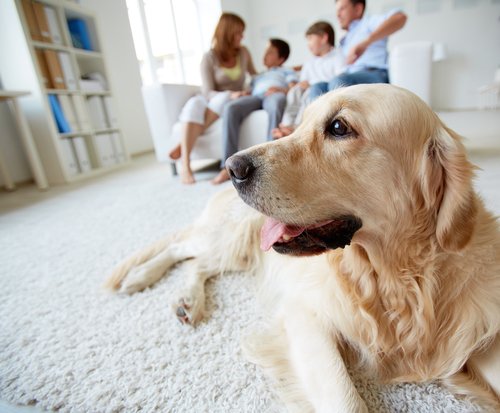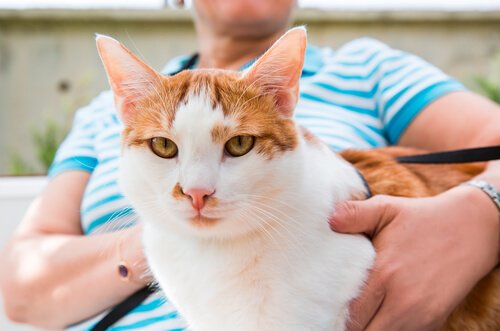A Pet is not a Hobby


Written and verified by the lawyer Francisco María García
Is your child always asking for a pet? Do you want to get a pet for the first time? Well, you need to know that having a pet is not a hobby.
Domestic animals are intelligent and emotional living beings that deserve responsible upbringing and proper care. Providing the optimal conditions for your pet’s development is not optional, but rather essential for conscious ownership.
Choosing the ideal pet for your lifestyle
Do you think it’s unfair to say that people with cats or dogs are different? It’s true that this saying should not be taken as a rule of thumb. True animal lovers are capable of loving and caring for their pets equally.
But it’s important to know that every animal gets used to their owner’s lifestyle and behavior. That’s why you must choose consciously which pet is best for the space in your home, your free time, and your personality.

Dogs are usually more dependent on their owners. They require time and availability to exercise, play, and train. Whereas cats are much more independent. But they are also more demanding regarding their food, hygiene, and socialization.
If your intention is to give a pet to a child as a gift, dogs are not always the best option. You should keep in mind that these animals need a lot of care and proper training.
Maybe it’s better to choose a smaller pet that requires less time and commitment. For example, a hamster or a turtle.
Legal and responsible ownership: avoid raising exotic animals in captivity
It’s worth remembering that many animals are not allowed as pets. In fact, there is a detailed list of illegal exotic species in Spain.
Ideally, nobody would keep exotic pets, or wild animals in captivity. This act of human selfishness puts the survival of many wild species at risk.
Why buy when you can adopt?
Adopting is not about saving money. Instead, it’s about not collaborating with abusive practices that are common in many animal breeding facilities.
Historically, many breeds suffered mutilations because of aesthetic standards or to work as fighting and forced labor dogs. This is the case of Pit Bulls, Cocker Spaniels, Rottweilers, Dogo Argentinos, Dobermans, etc.
When an animal’s life is considered a business, there can be serious consequences for the species’s health and development.
Adopting is an act of love that gives so many innocent animals a second chance and encourages respect and awareness for animal life. Furthermore, it promotes a relationship of mutual and selfless cooperation, as all loving relationships should be.
Adopted animals are able to learn and give affection just like any other dog breed. In addition, they will be forever grateful.
Having a pet is not a hobby: NO TO ABANDONMENT!
Animal abandonment and abuse is a reality that affects many countries. Its main cause is thoughtless ownership, which the pet-buying market facilitates to a large extent.
Unfortunately, many people get an animal without understanding the care, expenses, and responsibilities.
However, having a pet is not a hobby, it’s a responsibility for another being’s life. An animal is not a toy, a decoration, or an object that can be abandoned when you get bored of it.
Basic care for a happy and healthy life with your pet
A responsible owner must provide optimal conditions for their pet’s development. That means knowing the needs, habits, and care that he needs to have a healthy and happy life.

Here is a summary of the main characteristics of a responsible upbringing:
- Balanced diet
- Regular physical activity
- Preventative medicine: veterinarian visits, external and internal deworming, vaccination, proper hygiene, etc.
- Nurturing environment for a healthy development
- Avoidance of cold and heat
- Training and socialization
- Love, affection, and commitment
Understanding that a pet isn’t a hobby is a key step on the path to a more responsible society that takes care of all of its members. So let’s help protect our best friends.
Is your child always asking for a pet? Do you want to get a pet for the first time? Well, you need to know that having a pet is not a hobby.
Domestic animals are intelligent and emotional living beings that deserve responsible upbringing and proper care. Providing the optimal conditions for your pet’s development is not optional, but rather essential for conscious ownership.
Choosing the ideal pet for your lifestyle
Do you think it’s unfair to say that people with cats or dogs are different? It’s true that this saying should not be taken as a rule of thumb. True animal lovers are capable of loving and caring for their pets equally.
But it’s important to know that every animal gets used to their owner’s lifestyle and behavior. That’s why you must choose consciously which pet is best for the space in your home, your free time, and your personality.

Dogs are usually more dependent on their owners. They require time and availability to exercise, play, and train. Whereas cats are much more independent. But they are also more demanding regarding their food, hygiene, and socialization.
If your intention is to give a pet to a child as a gift, dogs are not always the best option. You should keep in mind that these animals need a lot of care and proper training.
Maybe it’s better to choose a smaller pet that requires less time and commitment. For example, a hamster or a turtle.
Legal and responsible ownership: avoid raising exotic animals in captivity
It’s worth remembering that many animals are not allowed as pets. In fact, there is a detailed list of illegal exotic species in Spain.
Ideally, nobody would keep exotic pets, or wild animals in captivity. This act of human selfishness puts the survival of many wild species at risk.
Why buy when you can adopt?
Adopting is not about saving money. Instead, it’s about not collaborating with abusive practices that are common in many animal breeding facilities.
Historically, many breeds suffered mutilations because of aesthetic standards or to work as fighting and forced labor dogs. This is the case of Pit Bulls, Cocker Spaniels, Rottweilers, Dogo Argentinos, Dobermans, etc.
When an animal’s life is considered a business, there can be serious consequences for the species’s health and development.
Adopting is an act of love that gives so many innocent animals a second chance and encourages respect and awareness for animal life. Furthermore, it promotes a relationship of mutual and selfless cooperation, as all loving relationships should be.
Adopted animals are able to learn and give affection just like any other dog breed. In addition, they will be forever grateful.
Having a pet is not a hobby: NO TO ABANDONMENT!
Animal abandonment and abuse is a reality that affects many countries. Its main cause is thoughtless ownership, which the pet-buying market facilitates to a large extent.
Unfortunately, many people get an animal without understanding the care, expenses, and responsibilities.
However, having a pet is not a hobby, it’s a responsibility for another being’s life. An animal is not a toy, a decoration, or an object that can be abandoned when you get bored of it.
Basic care for a happy and healthy life with your pet
A responsible owner must provide optimal conditions for their pet’s development. That means knowing the needs, habits, and care that he needs to have a healthy and happy life.

Here is a summary of the main characteristics of a responsible upbringing:
- Balanced diet
- Regular physical activity
- Preventative medicine: veterinarian visits, external and internal deworming, vaccination, proper hygiene, etc.
- Nurturing environment for a healthy development
- Avoidance of cold and heat
- Training and socialization
- Love, affection, and commitment
Understanding that a pet isn’t a hobby is a key step on the path to a more responsible society that takes care of all of its members. So let’s help protect our best friends.
This text is provided for informational purposes only and does not replace consultation with a professional. If in doubt, consult your specialist.








